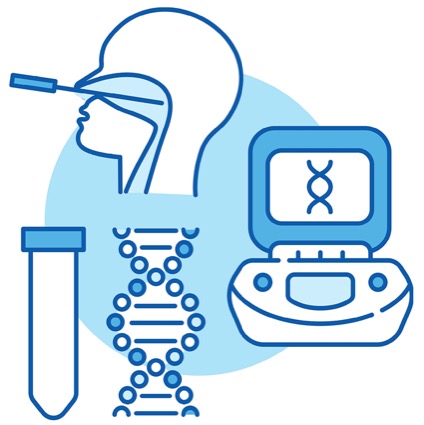Originally published by our sister publication Anesthesiology News
By Branden Sherman
The American Society of Anesthesiologists and the Anesthesia Patient Safety Foundation (APSF) recently updated their recommended guidance for perioperative screening for SARS-CoV-2, the virus responsible for COVID-19.
The most important change regarding protocols for patients involves testing: “If community transmission is low or moderate, the patient is asymptomatic and without exposure, is vaccinated, and is undergoing a lower-risk procedure, healthcare systems could consider a more permissive approach to testing.”
Daniel Cole, MD, FASA, the president of APSF, commented, “The future of the SARS-CoV-2 pandemic is difficult to predict. However, it is plausible that we are in a transition phase where ultimately SARS-CoV-2 will become an endemic disease that will be less disruptive to society and healthcare systems. As we make this transition, we will have to learn to adapt to various levels of community transmission.”
As knowledge surrounding SARS-CoV-2 continues to mature, screening protocols are examined and updated periodically to reflect the most up-to-date understanding of the virus as it has evolved and how it affects patients who are undergoing surgical procedures.
Given the current understanding of COVID-19, there is a tremendous amount of variation in the population with regard to how the disease presents itself. The range of symptoms varies greatly, with some people presenting with mild symptoms while others are much more severe.
To detect at-risk patients more thoroughly, robust protocols have been implemented to screen for SARS-CoV-2 prior to the date of surgery. The protocol for screening has thus far included determining whether the patient has come in contact with anyone diagnosed with COVID-19 within 10 days before surgery or has any symptoms, such as fever, chills, muscle pain, headache, sore throat, shortness of breath, cough, loss of taste or smell, nausea, vomiting or diarrhea.
New Recommendations
One of the most important updates to the screening protocols involves testing for SARS-CoV-2 utilizing polymerase chain reaction (PCR) tests. It is known that for up to three months following infection, it is still possible for viral particles to be detected by PCR, but these particles are presumed to be noninfectious, especially in healthy adult patients with a mild case of COVID-19.
This means that retesting healthy patients is no longer universally recommended, as these patients may test positive even though they are not necessarily infectious or have active virus. Because of this, testing will not be a significant factor in surgical scheduling.
With regard to patients who present with a severe case of COVID-19—or those who are otherwise immunocompromised or have other comorbidities that may exacerbate potential risk factors during surgery—a test-based strategy is still recommended by the CDC, which should be factored in alongside a patient’s symptoms. Patients with severe disease may produce replication-competent virus beyond the 10-day window seen in mild cases. In the case of severe COVID-19 disease, replication-competent virus can be present up to 20 days, and should be monitored from the onset of symptoms.
Another important update is that antibody testing is no longer valid for perioperative screening. In most cases, antibodies will develop in individuals who have been infected with SARS-CoV-2 during the second week of infection. However, this is not a reliable form of testing because some individuals will never develop antibodies, despite testing positive for infection. In addition, it is possible antibody tests can return false-positive results by detecting another, similar coronavirus. Therefore, PCR testing has been advised as the best approach when screening perioperative patients for SARS-CoV-2.
Finally, it is recommended that in places with high community transmission, screening protocols should continue in the same manner as was previously recommended.


